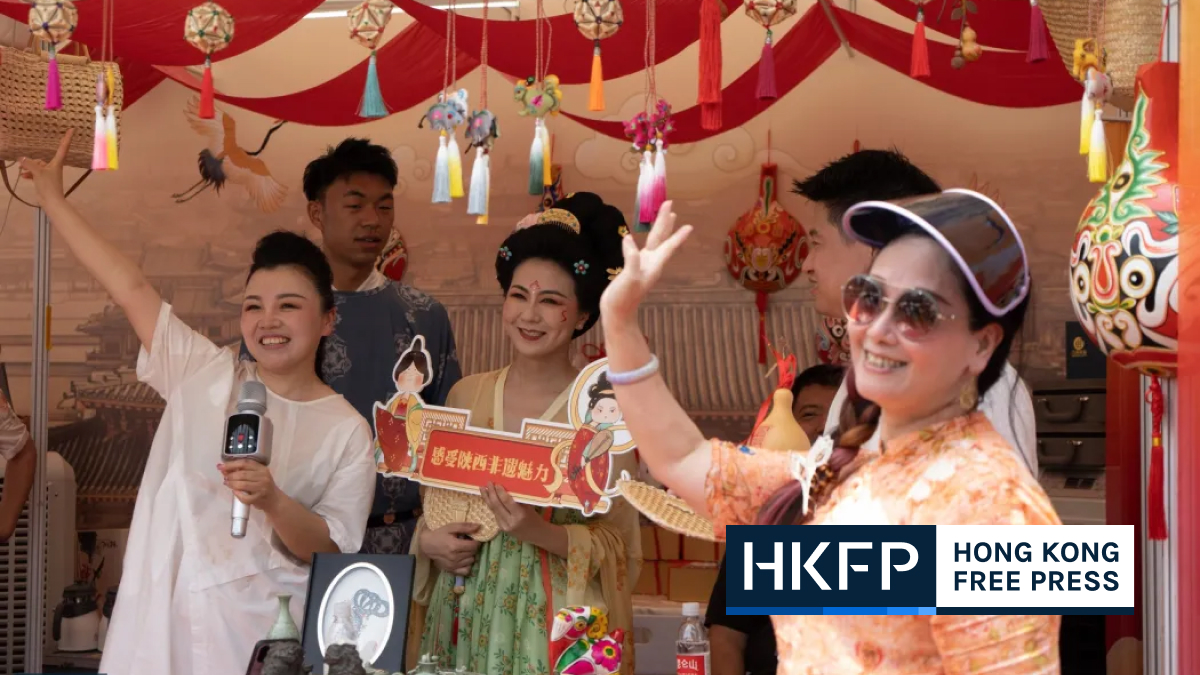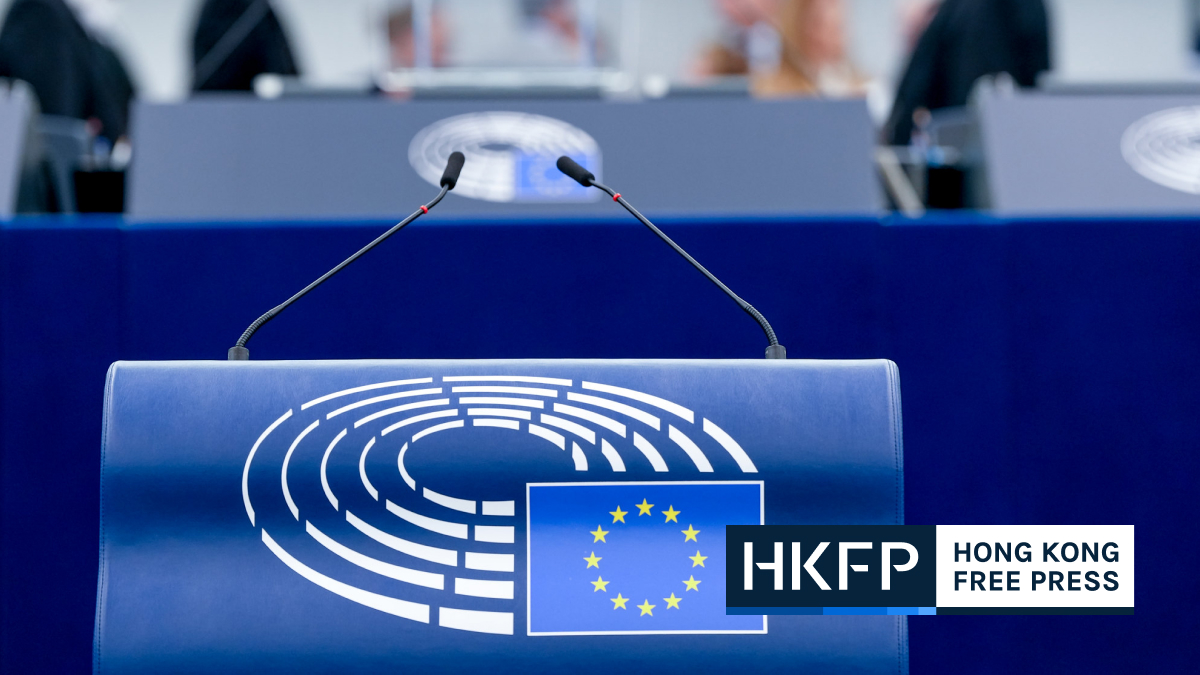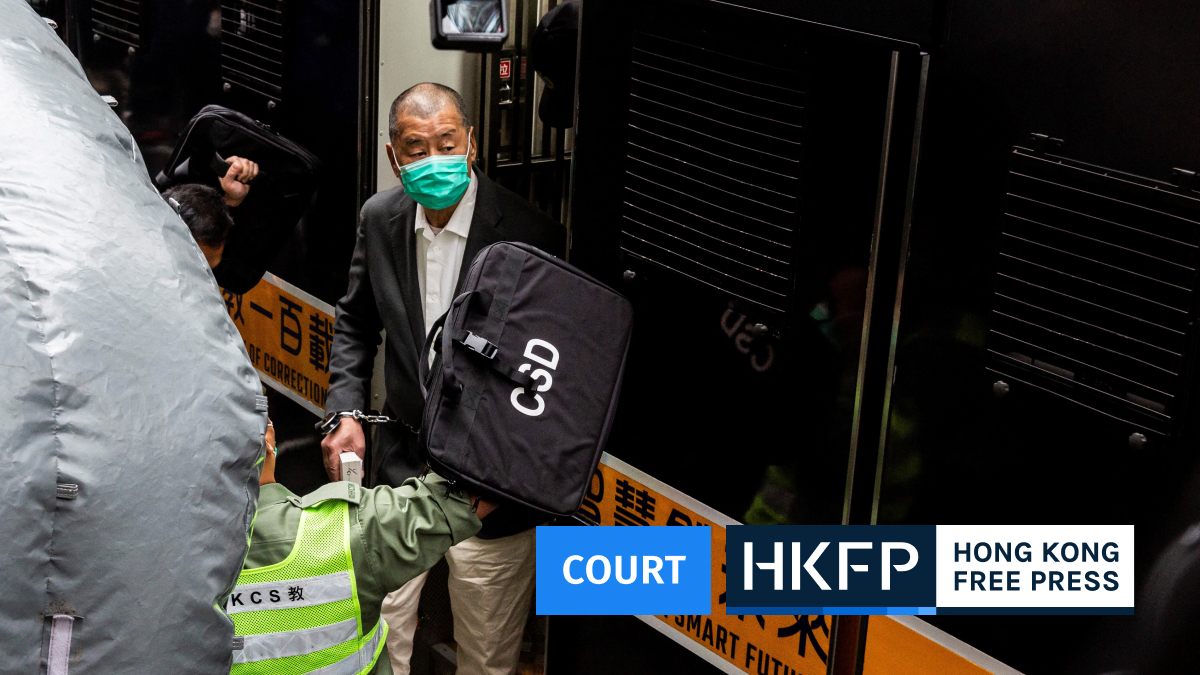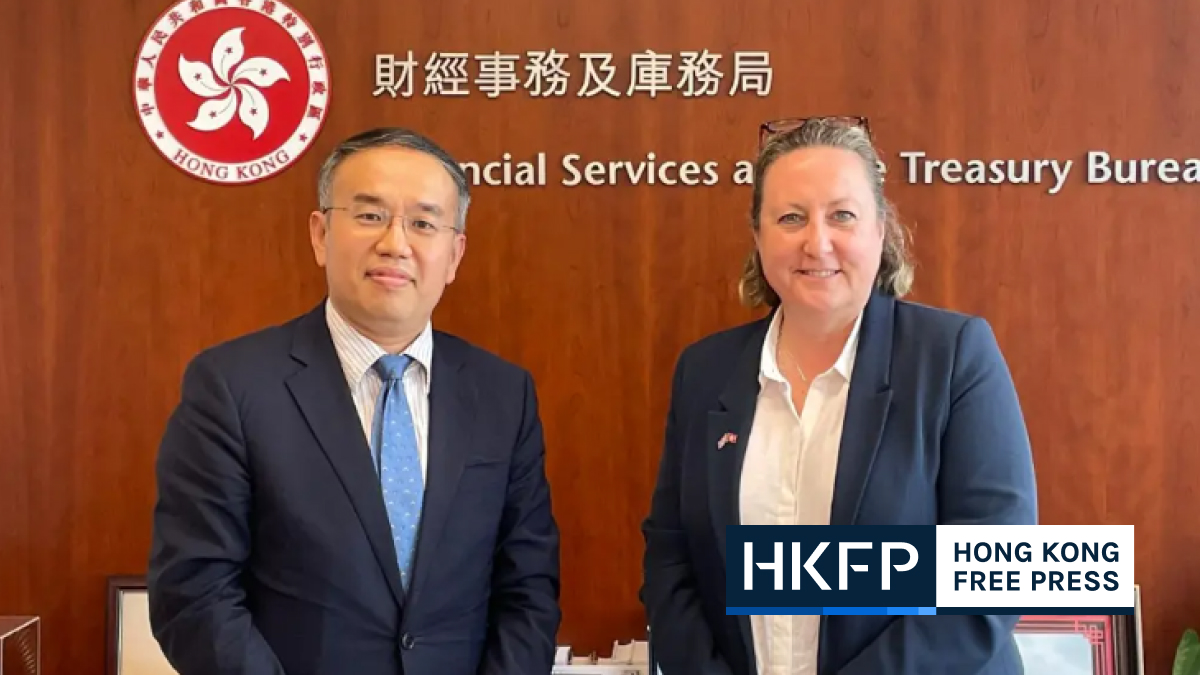The 21-year-old founder of self-proclaimed “revolutionary” political group Returning Valiant pleaded guilty to one charge of conspiracy to incite others to subvert state power under the national security law and one charge of possessing offensive weapons at District Court on Friday.
Choi Wing-kit’s plea came after his six co-defendants pleaded guilty to the conspiracy charge last month. He had asked for more time to review a revised case summary before entering his plea.

The other six were Yuen Ka-him, 17, Wan Chung-wai, 16, Leung Yung-wan, 17, Chris Chan, 26, Tseung Chau Ching-yu, 17 and Kwok Man-hei, 19.
The seven were accused of organising street booths and press conferences, as well as using social media, to spread seditious messages and incite subversion between January and May last year. Their promotional materials also mentioned revolutions in other countries such as France and Ukraine, the prosecution said.
‘Proud Hongkonger’
The court on Friday heard the mitigation of three defendants. Choi’s lawyer Kay Chan argued that the alleged subversion was of a minor nature and pleaded for leniency.
According to Article 23 of the national security law, which penalises incitement to subversion, an offence of a serious nature warrants a sentence of not less than five years but not more than 10 years, while the maximum penalty for a minor offence is five years.
Chan cited the precedent of university student Lui Sai-yu, who was jailed for five years for inciting secession by selling weapons online, arguing that the defendants in this case did not go as far as to buy or sell weapons. He said a sentence of less than than five years would be appropriate for this case because the defendants had not advocated actual violence.
Judge Kwok Wai-kin said the group told people to be ready to take action when the time came, encouraging them to “[get] prepared,” even though they were yet to act.

“All of their promotional materials talked about revolution, saying it did not matter if there was bloodshed,” Kwok said. “The violence they were advocating was very obvious and well planned.”
“I am worried that they wanted to build an army but had not been able to do so. But when the time arrived, they would have used violence,” Kwok said. “Isn’t that scarier than immediately [resorting to] violence?”
Choi’s lawyer argued that they were only “grandstanding” and that the remarks were “superficial.” But Kwok said “the biggest problem is something can become real after being repeatedly talked about.”
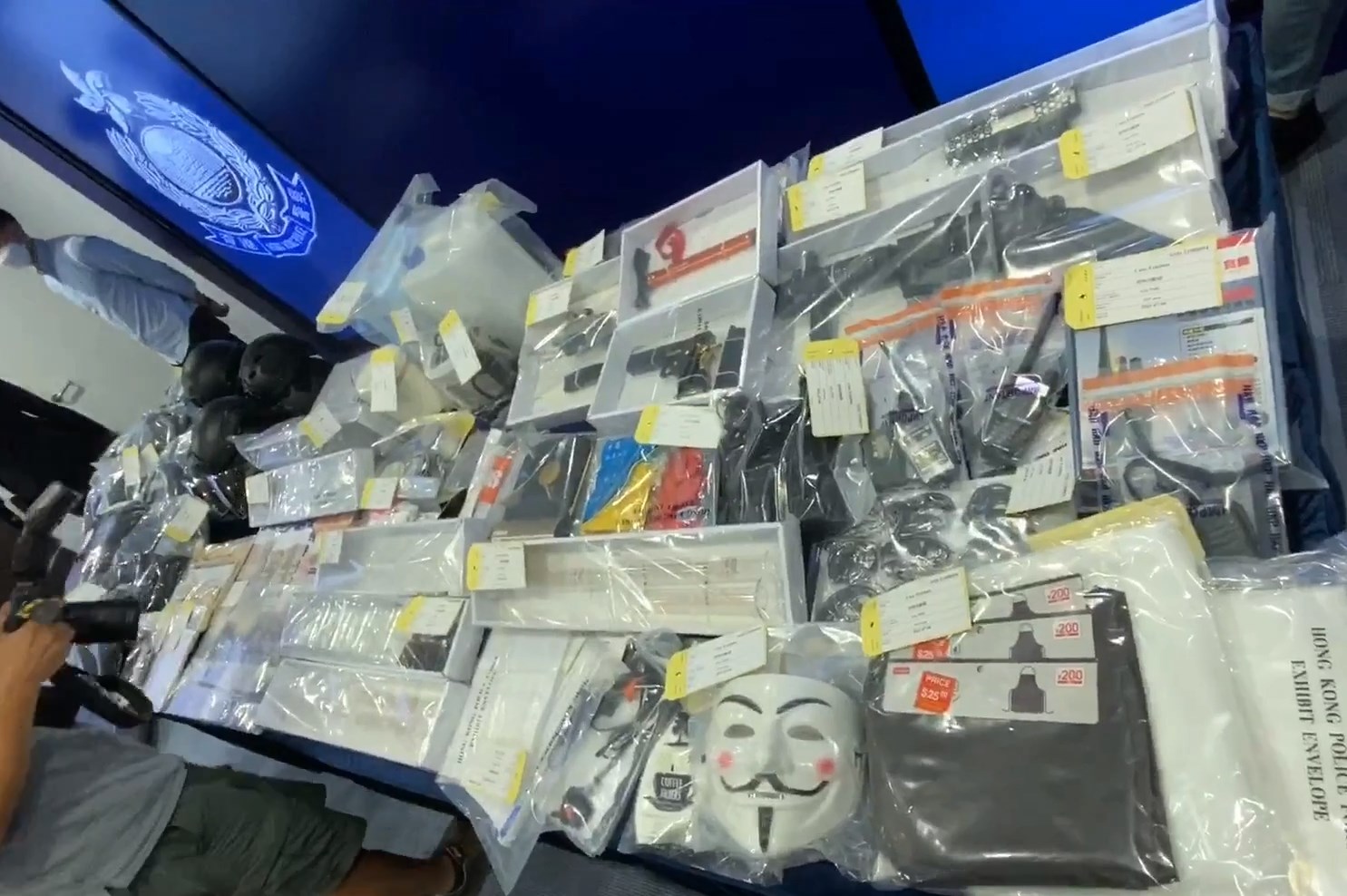
Kwok also said offensive weapons, such as imitation firearms, had been found in some of the defendants’ homes. Chan said many of the firearms were not functional, adding “no one would use a toy gun to subvert state power.”
The defendant had a collection of imitation guns, with some purchased before the protests and unrest in 2019, Chan added.
Wrapping up the mitigation, Chan read out a letter Choi wrote, in which he expressed willingness to be held accountable for his wrongdoings. He said he was “proud to be a Hongkonger” but became disappointed because “the birthplace [he] loved started to deteriorate.” Young people only went onto the streets out of despair and helplessness, Choi wrote.
Choi said after he was arrested, he came to understand that what he did was not a reasonable way to resolve problems, and people should not resort to violence.
Young defendants
Lawyers for Yuen and Wan both pleaded for leniency due to their young age. Yuen was only 16 years old and Wan just 15 when they committed the offence.

Queenie Ng, who represented Yuen, said although he was named the spokesperson of the group, he had a “weak sense of law-abidingness” and “did not fully understand the impact and consequences of his words.”
Wan’s representative David Lu said the girl had spoken at some of the group’s public events, but said she was largely a “pure, almost ignorant” teen. Lu told the court that the girl had not participated as actively as she had stopped taking part in the group’s activities in April. She also stopped taking calls or replying to messages.
Lu urged the court to adopt leniency and avoid a prison sentence for Wan, if possible.
Legal argument
The prosecution and defence were also briefly locked in a legal argument over sentencing and possible discounts for guilty pleas.
The charge the defendants face combines the Crimes Ordinance and the national security law, with the conspiracy part coming from the Crimes Ordinance, and the inciting subversion element stemming from the national security law, the court heard.
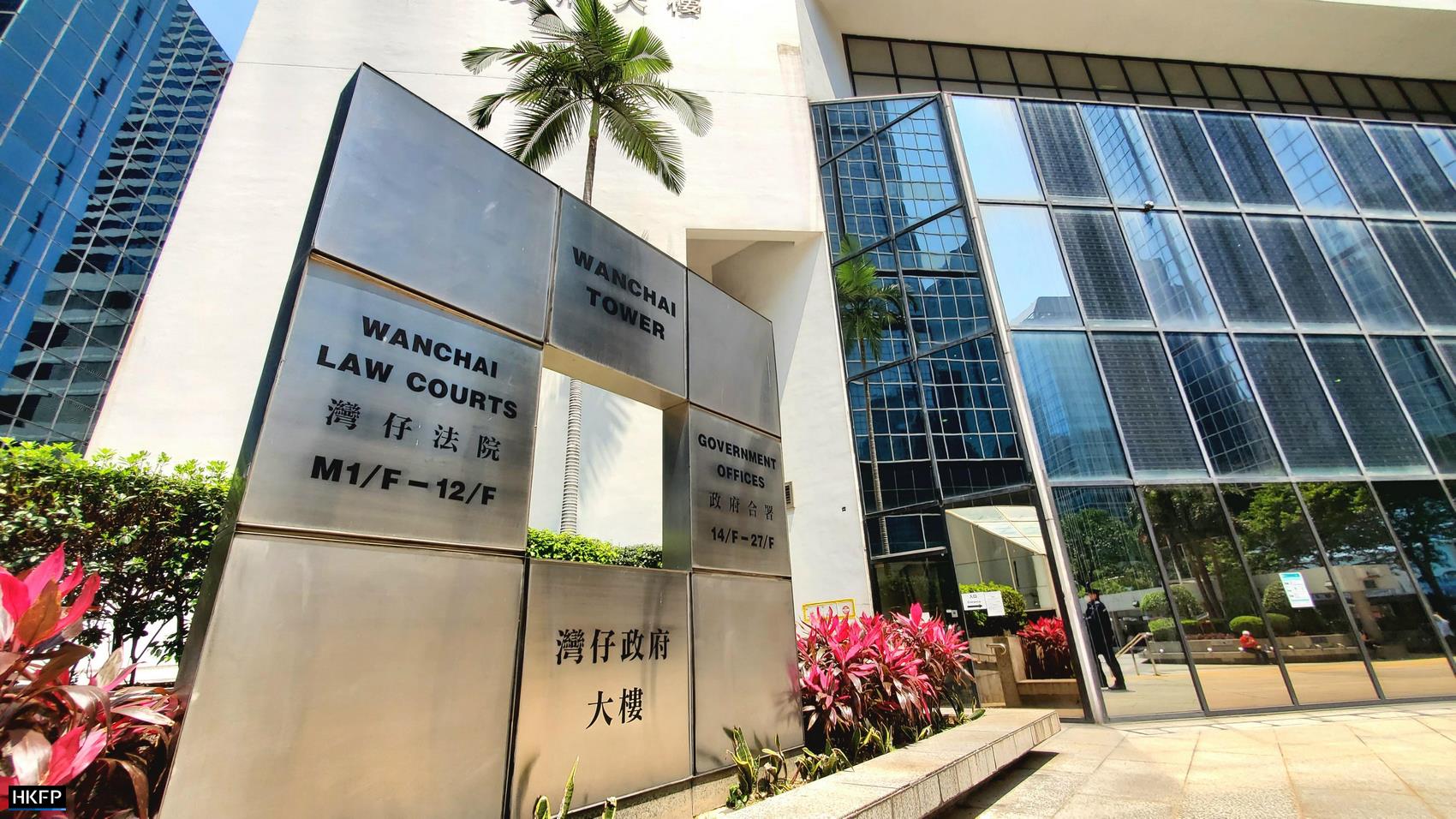
The prosecution argued that someone convicted of conspiring to commit an offence should face a penalty that matches that of the actual offence, as long as the penalty for the conspiracy charge does not exceed that of the relevant offence, according to Article 159C of the Crimes Ordinance.
For example, as the penalty for murder is life imprisonment, a person found guilty of conspiring to commit murder can also be jailed for life.
Prosecutor Anthony Chau said that while 159C capped the maximum penalty of conspiracy charges, it did not restrict the prosecution to follow the “minimum term” of the substantive offence. He argued the minimum term for inciting subversion under the national security law was five years for serious cases, so the court should adopt that principle in sentencing the defendants, adding that the penalty should have a deterrent effect.
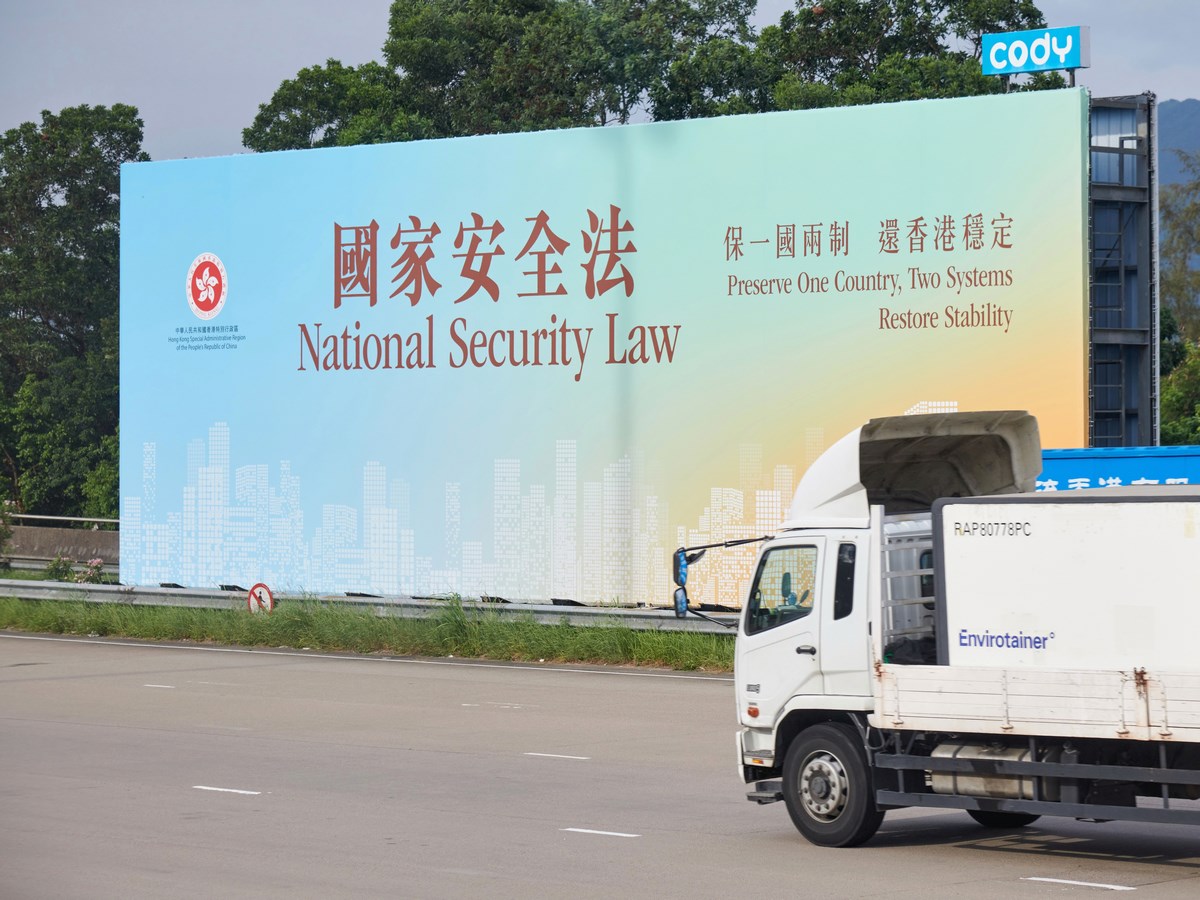
Several defence lawyers took turns to make rebuttals. Barrister Tien Kei-rui said there was in fact no minimum term in the national security law, adding that a minimum term was not required for a penalty to have a deterrent effect.
Additionally, applying a minimum term could impact whether a guilty plea guarantees a sentence reduction, Tien argued. It is a widely recognised practice in Hong Kong’s criminal law system that defendants enjoy a one-third discount to their sentence if they plead guilty.
Tien said if the court adopted the prosecution’s suggestion of a five-year minimum term for serious offences, future defendants would lose the incentive to plead guilty because it may not promise as large a reduction.
Choi’s lawyer Chan said the court cannot abandon the usual criminal law principles just because the case involves national security.
The case was adjourned to September 16, when the rest of the defendants will mitigate their case. The judge extended the bail of Tseung Chau Ching-yu, while the others remained in remand.
Support HKFP | Policies & Ethics | Error/typo? | Contact Us | Newsletter | Transparency & Annual Report | Apps
Help safeguard press freedom & keep HKFP free for all readers by supporting our team





















